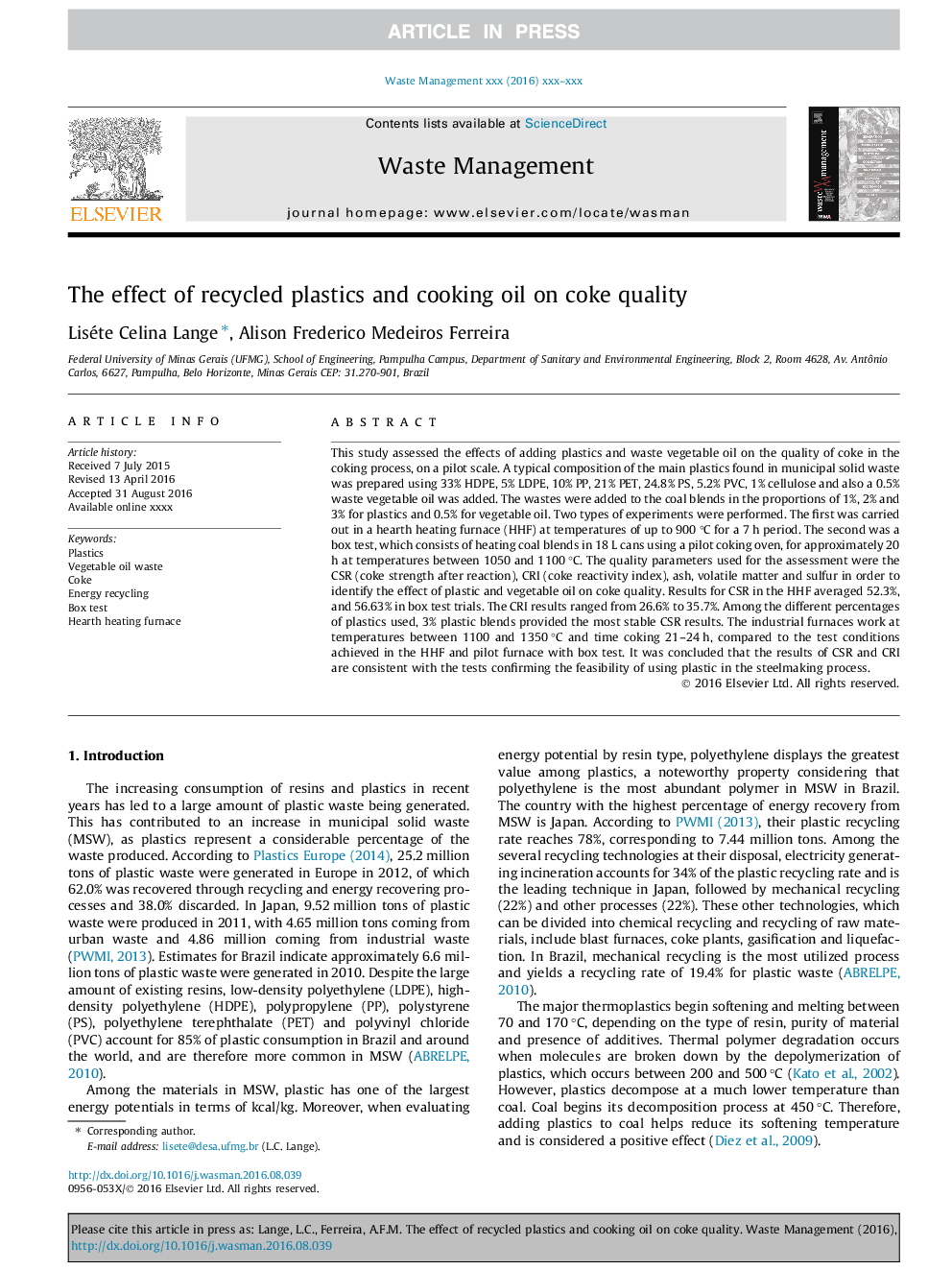| Article ID | Journal | Published Year | Pages | File Type |
|---|---|---|---|---|
| 5756961 | Waste Management | 2017 | 7 Pages |
Abstract
This study assessed the effects of adding plastics and waste vegetable oil on the quality of coke in the coking process, on a pilot scale. A typical composition of the main plastics found in municipal solid waste was prepared using 33% HDPE, 5% LDPE, 10% PP, 21% PET, 24.8% PS, 5.2% PVC, 1% cellulose and also a 0.5% waste vegetable oil was added. The wastes were added to the coal blends in the proportions of 1%, 2% and 3% for plastics and 0.5% for vegetable oil. Two types of experiments were performed. The first was carried out in a hearth heating furnace (HHF) at temperatures of up to 900 °C for a 7 h period. The second was a box test, which consists of heating coal blends in 18 L cans using a pilot coking oven, for approximately 20 h at temperatures between 1050 and 1100 °C. The quality parameters used for the assessment were the CSR (coke strength after reaction), CRI (coke reactivity index), ash, volatile matter and sulfur in order to identify the effect of plastic and vegetable oil on coke quality. Results for CSR in the HHF averaged 52.3%, and 56.63% in box test trials. The CRI results ranged from 26.6% to 35.7%. Among the different percentages of plastics used, 3% plastic blends provided the most stable CSR results. The industrial furnaces work at temperatures between 1100 and 1350 °C and time coking 21-24 h, compared to the test conditions achieved in the HHF and pilot furnace with box test. It was concluded that the results of CSR and CRI are consistent with the tests confirming the feasibility of using plastic in the steelmaking process.
Keywords
Related Topics
Physical Sciences and Engineering
Earth and Planetary Sciences
Geotechnical Engineering and Engineering Geology
Authors
Liséte Celina Lange, Alison Frederico Medeiros Ferreira,
